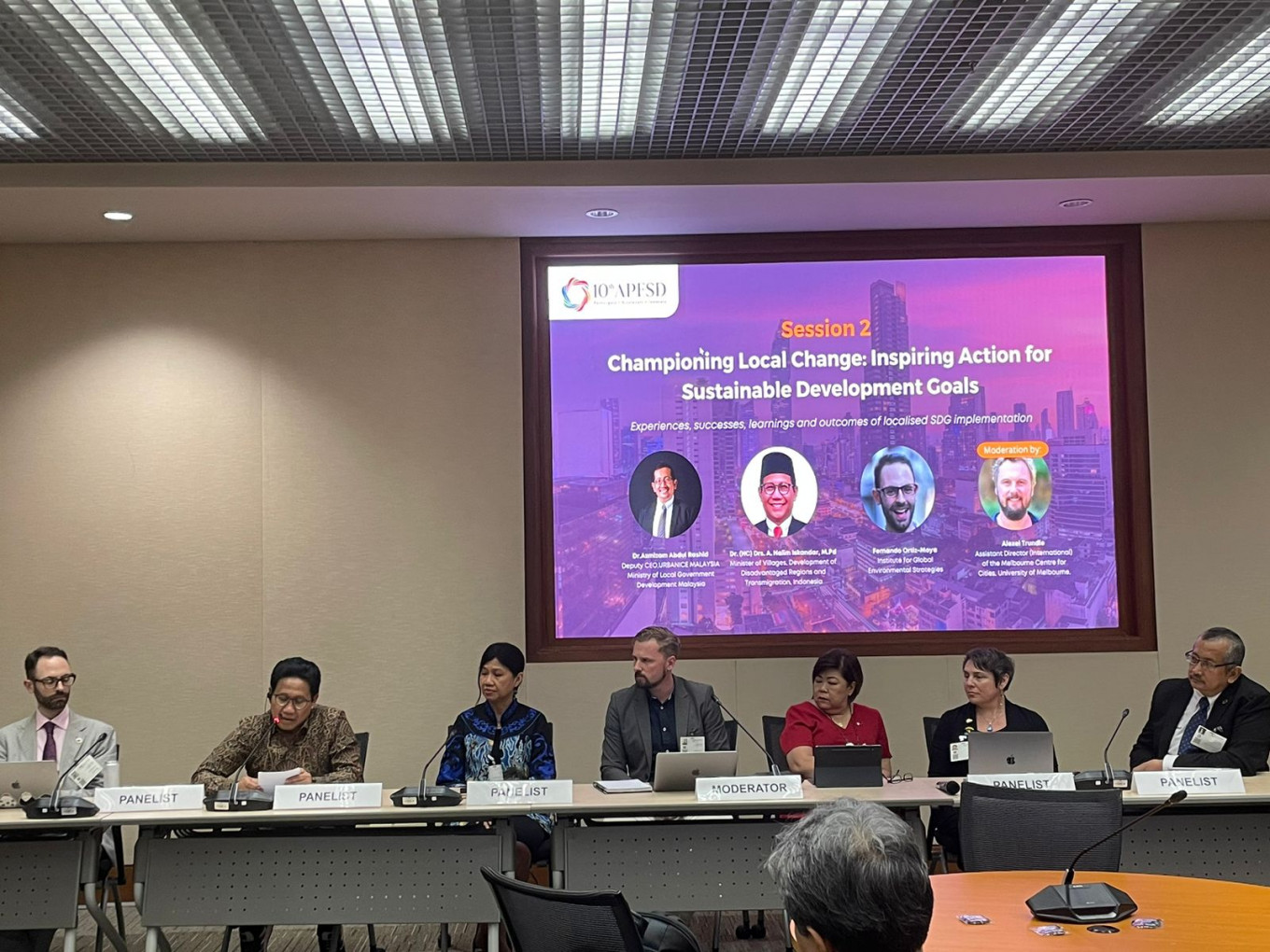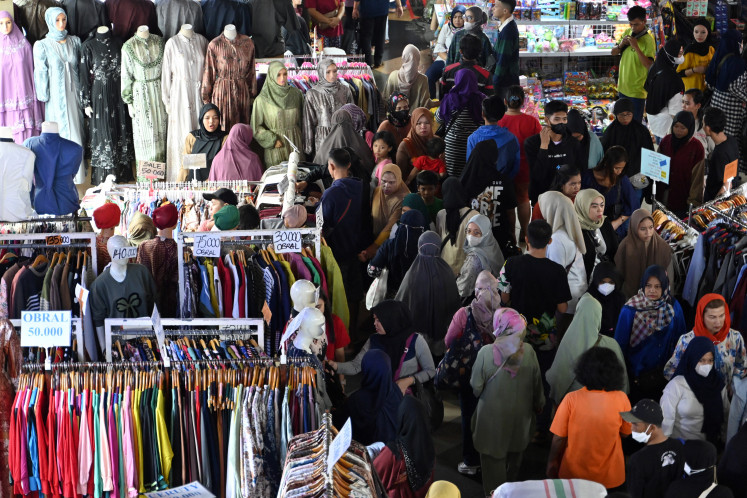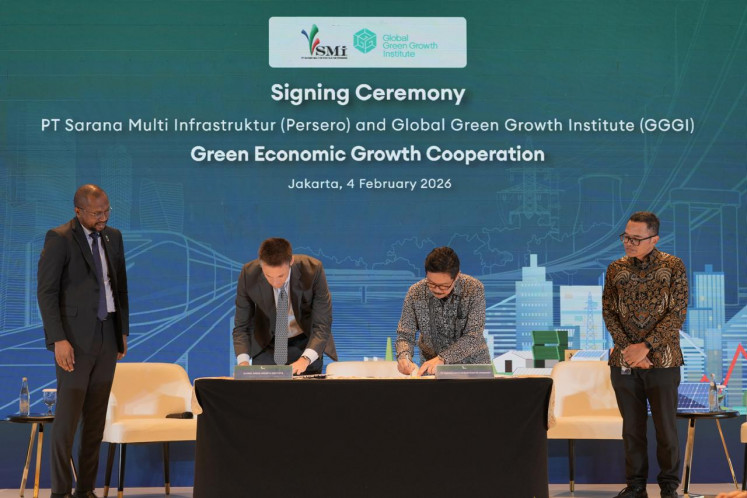Popular Reads
Top Results
Can't find what you're looking for?
View all search resultsPopular Reads
Top Results
Can't find what you're looking for?
View all search resultsSGDs Desa introduces strategies to accelerate targets of Asia-Pacific countries
Also present at the event were Germelina Singson-Goulart from the Philippine City League, Norliza Hashim and Azmizam Abdul Rashid from Urbanice Malaysia, India Dechrai of Monash Sustainable Development and Fernando Ortiz-Moya from the Institute for Global Environmental Strategies.
Change text size
Gift Premium Articles
to Anyone
T
he Indonesian Minister of Villages, Disadvantaged Regions And Transmigration, Abdul Halim Iskandar, was among the panelists invited to the Asia-Pacific Forum on Sustainable Development (APFSD) 2023 held on Monday in Bangkok, Thailand.
Organized by the United Nations’ Economic and Social Commission for Asia and the Pacific (ESCAP), the 10th edition of the annual forum ran from March 27 to 30 and was themed “Accelerating the recovery from the coronavirus disease (COVID-19) and the full implementation of the 2030 Agenda for Sustainable Development at all levels in Asia and the Pacific”.
The first day included a side event focusing on Sustainable Development Goal (SDG) 11, titled “Glocalization: Catalyzing Local Implementation of Global Goals in Asia and the Pacific”.
Also present at the event were Germelina Singson-Goulart from the Philippine City League, Norliza Hashim and Azmizam Abdul Rashid from Urbanice Malaysia, India Dechrai of Monash Sustainable Development and Fernando Ortiz-Moya from the Institute for Global Environmental Strategies.
“SDGs Desa [Village SDGs] can offer optimism, as this expounds a strategy to accelerate the SDG goals of Asia-Pacific countries,” Halim said in his opening speech.
The minister added that the APFSD presented a key to unlock Indonesia’s expansion through a multiangular perspective on how to accelerate local implementation of the SDGs.
Halim said he believed in prioritizing Indonesia’s vision through a local lens, as this would enable the country to “ground the SDGs at the village level through the SDGs Desa initiative”.
“Villages have two strategic advantages in Indonesia,” he continued. “On the one hand, the scope of village administrations has great relevance, covering 91 percent of the lowest level of government in Indonesia. Meanwhile, the remaining nine percent are located in urban areas.”
Halim said the second advantage of Indonesian villages was their vast population, and cited the Indeks Pembangunan Desa 2021 (Village Development Index 2021), which recorded 214 million rural residents across the archipelago.
“The Indonesian Ministry of Home Affairs reported that 71 percent of [village] residents have a personal identity card and live in the area” where they were registered, “and only 29 percent live in urban areas”, he added.
As the lowest level of government, village administrations were thus able to interact directly with the people, while for village residents, local officials served as their closest government representatives.
The minister thus aimed to accelerate village development by implemented 17 goals under the SDGs Desa initiative, which had now been supplemented with a new, 18th goal.
By 2022, the government had disbursed Rp 68 trillion (US$4.5 million) through the village fund, or 58 percent of the Rp 118 trillion allocated for the assistance scheme, which focused on achieving the goals of the SDGs Desa program. It is expected that, with the additional support of village revenues and expenditures, the SDGs Desa goals will be achieved by 2030 and will bring positive benefits to all villages and their residents.
The SDGs Desa program has been armed with data on population figures, households and areas that need developmental support. The public can access this information online on the websites of district, city and provincial administrations, as well as those of the central government.
The SDGs Desa program is centered on the aim of reformulating the development of villages in Indonesia and empowering local communities to participate in decision-making for the purpose of exploring and capitalizing on local potentials to elevate standards of living, based on the philosophy that building a nation “takes a village”.
This article was published in collaboration with Ministry of Village, Development of Disadvantaged Regions and Transmigration










